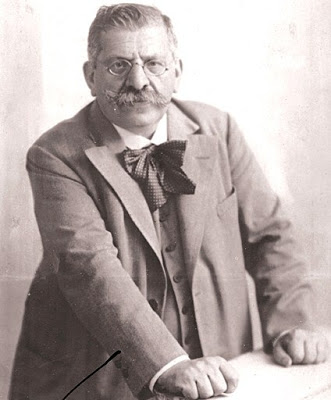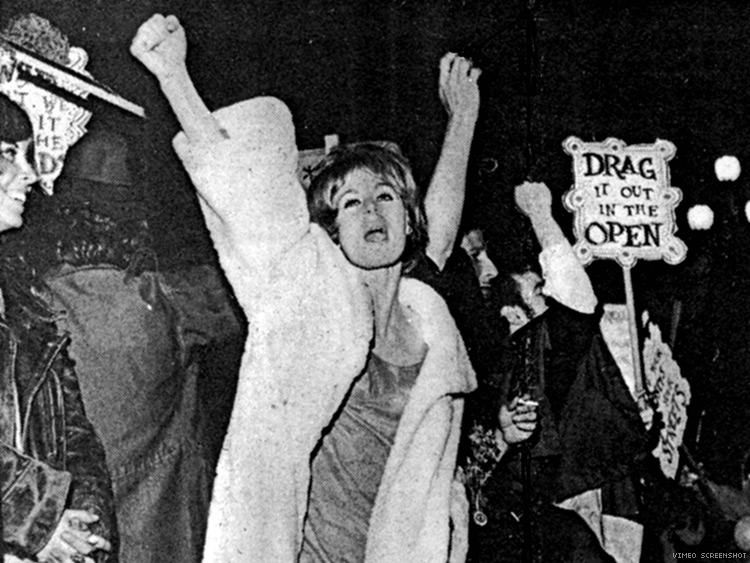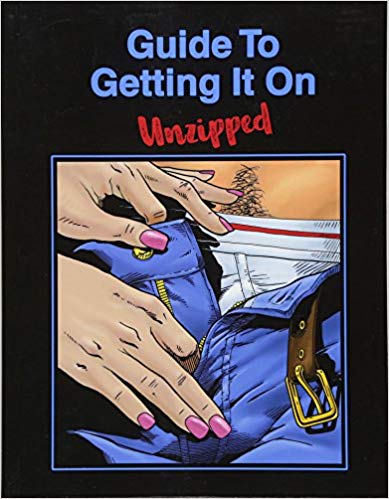Tags
Church of Jesus Christ of Latter-day Saints, Mormon, Mormon temple, Mormonism, Sexual abuse, Sexuality, Temple
Trigger warning: The following contains some discussion of sexual abuse.
Sometime around 1890 at the age of 27 Jens Peter Pedersen and his wife Inger Marie arrived in America from Denmark with their 4 children. In Denmark they had converted to Mormonism. I think it’s safe to assume that giving up one’s home country, traveling to the opposite end of the world at great financial cost with 4 children in tow, in pursuit of one’s religious belief is an incredible act of faith.


Unfortunately, we don’t know much more about Jens and Inger Marie after that except for a one paragraph comment in a distant relative’s life history. I’ll get to that in a second.
I do know that the Pedersen’s grandson, Randall, wasn’t very Mormon at all. In fact, although he lived his whole life in Utah, Randall could best be described as agnostic. Neither his parents nor his siblings, appear to have been religious let alone Mormon to any degree.
Randall was my paternal grandfather and growing up I always found it curious how my paternal relatives exhibited very few Mormon traits in spite of their generational Utah residency. I don’t even think the term “Jack Mormon” would accurately describe them. They were an odd bunch of messy gentiles among polished Mormons, completely devoid of the Mormon smiles, niceness, cheeriness and religious fervor that so personified my Mom’s family.
Before meeting my Mom, my Dad, Randall’s son, the Pedersen’s great grandson, had very loose ties to Mormonism having participated in youth activities as much as anyone might who grew up in Utah in the 1950’s. He married my Mom in the temple but he pursued the religion only to the extent that it was all he knew and that it made my Mom happy. My seven siblings and I were always very aware of this religious ambivalence in our family.
I naturally take after my Mom’s people, the actively participating Mormons. I hate contention. I can’t handle conflict and avoid it at all costs. I’m naturally cheerful and even when I’m not, I’d never express it outwardly. I grew up on the notion that obedience was the first law of heaven and that God had a plan for me which meant following parents, prophets and church leaders, always accepting callings, never saying “NO.”
My Mom’s mother had also immigrated – from England around 1921. She was the illegitimate result of her mother and her abusive uncle (her aunt’s husband). Oddly enough, that same aunt and uncle raised her while her mother, my great-grandmother struggled desperately to survive on her own.
Like many families, we grew up naturally closer to our Mom’s side than our Dad’s. I have always wondered what made my Dad’s family so … so not Mormon. I can make a pretty good guess at what attracted my Mom’s ancestors to the Latter-day movement. As a victim of poverty and sexual abuse, my maternal English great-grandmother grew up orphaned and was likely attracted the doctrines of eternal families, redemption, forgiveness and worthiness. There’s no shame or weakness in any of that. She eventually married, converted to Mormonism and became a pillar in her English Mormon community. The majority of her descendants stuck with it from what I can tell.
Why didn’t Jens’ and Inger Marie’s posterity remain Mormon?
A few weeks ago I happened upon one paragraph in a distant relative’s life history that changed this narrative of the two sides of my family. In that life history, a distant paternal cousin describes meeting Jens and Inger Pedersen in the quote below. I’ve changed the other names, but for context, “Todd’s” parents would be my great-great-grandparents, the Pedersens from Denmark:
“Janice remembers that Lucy and her children actively attended church as members of the Church of Jesus Christ of Latter-day Saints. This activity slowly fell away as Todd was bitter toward the church. His parents had emigrated from Denmark after accepting the gospel into their lives. Upon being sealed in the Salt Lake Temple they were distressed by the temple ordinances and turned away from the Church influencing their son.”
Did you catch that? They were distressed by the temple ordinances and turned away from the Church.
Most modern-day Mormons would read that and agree with the tone of the author. What a shame that they didn’t understand the significance and sacred meaning of the temple ordinances! Twenty years ago I would have thought the same thing. I would have seen the Pedersens as weak and faithless.
But let’s be frank about what Jens and Inger Marie experienced in the temple in the 1890’s in Salt Lake City, Utah after having uprooted their little family and moved to a strange land. They had likely been living in Utah for 3-4 years as new member immigrants anticipating the completion of the Salt Lake City temple in 1893. I won’t describe the entire temple ceremony here but only those parts that might cause a reasonable person “distress.” The ceremony has also been significantly modified since that time so I speak of it in the past tense as they would have experienced it:
- First, the Jens and Inger likely knew very little about what actually happened in the temple before they immigrated from Denmark, or even before they entered the temple themselves in Utah. Like all Mormons, they entered blind and naïve in spite of years of Mormon membership. When I participated in my first temple ceremony in 1984 I was told almost nothing about the actual ritual. It was just discussed in very vague but glowing terms.
- Upon entering, they were asked to remove all their clothes for the initial ceremony of “washing and anointing” which was performed with patrons completely nude. Temple officiants would touch various parts of the participant’s body in order to “wash and anoint” them (not genitals, but it’s still a violation of personal space and boundaries). By the time I participated in the ceremony we were nude but given ponchos open at the sides so that the officiants could still do their touching.
- At the end of the washing and anointing ceremony, the temple officiant helped the patron clothe themselves in new special underwear called “garments” which they were then expected to wear 24/7 for the rest of their lives (removing only for bathing, sports, and sex).
- Next, as the audience of a large-group mini-play called “the endowment” patrons would be given “Tokens, signs and penalties” as part of their participation. Tokens were special handshakes. The signs were gestures and hand movements which pantomimed various death penalties the patron would suffer if they revealed the handshakes to anyone. As patrons pantomimed the death signs they would recite a penalty that “their life would be taken” for violating the expectation of complete secrecy.
- Temple participants took an oath of vengeance to avenge the deaths of their charismatic leaders Joseph Smith and his brother Hyrum Smith.
- There was a lecture at the veil discussing the Adam-God doctrine, something which they had probably never previously heard.
- Women and men were treated differently. They sat separately during the endowment ceremony. While the men were directed to obey God, the women were directed to obey their husbands. At one point, women veiled their faces during a group prayer.
- By the end everyone is clothed in green and white costumes with unusual baker hats for the men and veils for the women.
- During the prayer portion at the end, there was a chanting segment where patrons recited “Pay Lay Ale” (a gibberish phrase supposedly from the language of Adam) several times as they raised and lowered their arms.
- In the front of the room a curtain called “the veil” symbolized the passageway from our current mortal state into the afterlife. At the end of the ceremony, patrons were tested at that veil. It was a review of the handshakes and key phrases that they had learned during the ceremony. There were men on the other side who quizzed the patron’s knowledge of the handshakes and phrases culminating in the two individuals embracing mouth to ear, shoulder to shoulder, hand to hand, knee to knee, foot to foot. In spite of the curtain separating the participants it was an incredibly intimate position to be placed in, man or woman.
In summary: Nudity, touching, new regulation underwear, death threats and violent imagery, oaths of revenge, unequal treatment of the genders, chanting, strange and unfamiliar doctrine, intimacy and touching beyond what one would normally experience with anyone but a spouse.
Now tell me which is more admirable and moral … The vast majority of people who participated in this ritual and welcomed it as their new normal, a new way of life that they would then later introduce to their own children OR the people who were horrified in the face of such an experience and immediately walked away and possibly felt abused, bitter or deceived?
Today, knowing what I know about the temple ceremony in 1890, I honor the courage and moral fortitude of my ancestors. Praise to Jens and Inger Petersen! I can’t imagine what it took to pivot and walk away from something that you had already sacrificed so much for.
There’s a human tendency to react to such an experience by succumbing to the “sunk cost fallacy.” This is a human impulse whereby a person is reluctant to abandon a strategy or course of action because they have invested heavily in it. Most Mormons who have entered the temple, including myself, have rationalized the temple event in glowing terms, giving very little space for an honest reaction to what would (and should) normally trigger alarm bells and a fight or flight response. By the time any individual has walked through a temple door they have already invested so much time, money and emotion in their Mormon strategy that their acceptance of the event is almost a foregone conclusion.
It’s rare that you ever hear of someone like the Pedersens who have the moral courage to stop and change course after such a heavy investment. I am super proud that I have that legacy in my family heritage.
How does one learn that courage and moral fortitude? How do the Mormon church and other religions manage or discourage that impulse to say NO?
And what about my maternal family? What was it about them that made them accept the sunk cost and lie down and take it? I think I know at least one element that contributes to this lack of resistance and it’s exactly the same process by which a sexual predator grooms their victims.
Let me preface what I am about to say by clarifying upfront that there is no overt acceptance of sexual abuse in Mormonism. There are, however, generations of policies, doctrines, procedures and cultural practices which create an environment where members are left without the skills or practice of standing up for themselves and saying NO.
Morality isn’t taught as a personal prerogative or a guiding personal compass accessible to everyone, but it’s only what church leaders say it is. Members are taught obedience, placid acceptance of uncomfortable and just plain wrong policies. They are taught to comply, rather than to resist even when they know something is wrong.
Mormons sing “Choose the right let the consequences follow” but then every lesson manual and leaders’ talk explicitly reminds members that “the right” is whatever they say it is. It’s nothing they have to discover beyond just praying to know what the leaders are telling them is truth. Nothing and I mean NOTHING prepares a Mormon to stand up for themselves and contradict a church doctrine practice or expectation.
Without going too deep into church history I’d also suggest that the temple ceremony itself was originally implemented as a tool to permit the Mormon founder and author of the temple ceremony, Joseph Smith, to sexually exploit his female followers. He used it as a means to keep his extra-marital liaisons secret, protected and revered under the guise of religious devotion.
As someone who personally suffered sexual abuse from a family member as a young boy in the seemingly safety and comfort of my own bed at night, I would describe my Mormon temple experience as a similar breach of consent, love and safety. Mormon teachings and culture were a set-up to me for being incapable of resisting and saying NO to sexual impropriety as a young boy or to the temple ceremony as a young man. They feel like the same violation to me. They both violated the basic principle of consent.
The pillar of consent is knowing exactly what and how much one is agreeing to before participating. I’d venture to claim that no one entering a Mormon temple for the first time knows exactly how much and to what one is agreeing. There is a point after the washing and anointing, but before the endowment ceremony, where patrons are given the option to proceed or to withdraw. It’s a sort of pseudo-consent, because even at that point they still don’t know what they’re getting themselves into. They just know that they’ve prepared for this moment their whole lives and their loved ones are sitting next to them with huge smiles expecting them to proceed. They have likewise at this point already permitted someone to touch them all over their body in the washing and anointing portion. The “sunk cost” fallacy. I have never seen nor heard of anyone withdrawing at this point.
Other requirements for consent are being able to understand, and then being free from any form of coercion.
Both my sexual abuse and my Mormon temple experience violated these basic rules of consent. They feel the same to me.
Reflecting again back on the differences between my maternal and paternal families, here are some further personal facts. Sexual abuse was rampant in my mother’s family. Mormonism neither started it nor caused it but it also did nothing to help individuals prevent it or handle it either. When I finally revealed my sexual abuse to my parents, my mother revealed that not only she but also her mother and her mother’s mother suffered sexual abuse as young girls. I suspect that that was only the tip of the iceberg in that family. Mom’s advice to me was what her mother had told her: Forgive and move on with your life. Don’t cause contention. Remain obedient to the gospel. In other words, react to your sexual abuse exactly the same way our Mormonism taught us to react to the temple and every difficult thing. Suppress, smile, obey and forgive.
NO.
I currently subscribe to the morality of Jens and Inger Pedersen. Just No.
I no longer have anything to do with the perpetuator of my sexual abuse nor with the organization that perpetuated the religious of abuse of my ancestors and of myself.
As a young father I was determined that my own kids would be spared that dark side of humanity, the sexual abuse that seemed rampant in my maternal line of family. I never left my kids alone at family gatherings. I trained them that they could say NO to anyone in authority, they had full body autonomy over their bodies. They could choose their own clothes, dress themselves and I was fully open and unashamed about my own abuse experiences so that they could learn from it.
I’ve learned that true morality allows, even demands, conflict and contention. I even learned at the age of 40 to say NO, and to pivot despite the sunk costs of the previous 40 years.
Spiritually speaking, I found protecting my kids to be more difficult. They’ve been raised 50/50 between their faithful Mormon mother and me, their apostate gay father.
I’ve often felt powerless to protect my children spiritually like I have physically. But much to my amazement there is among them more than one who inherited what Jens and Inger Marie Pedersen had, the innate moral fortitude to look at something immoral in the face and say “NO, that’s wrong” despite their sunk costs.
They didn’t get it from me. I’ve rarely talked to them about Mormonism, much less my experience in it for fear that it would alienate them and become a wedge between us. As far as I knew I was just trying to be the best father to 4 Mormon kids. Then, one day during an unrelated argument one of my kids broke down and related her distress at Mormonism. She was able to recognize abuse and immorality and say “No” even though it caused contention with her Mom and even though she came out looking like the bad, unworthy rebel child. She took a huge risk that most people aren’t willing or able to take and I admire and honor her and others I know who have done that.
And I’m here to say decisively that being a temple-going Mormon is not the moral high ground they think it is. It never was, and regardless of how many tepid changes Mormons make to the ceremony, it will always be a less admirable path of submission than the one taken by those people who looked it in the face and said, “No.”
Sources:
http://www.ldsendowment.org/timeline.html
https://www.jstor.org/stable/45226771?seq=47#metadata_info_tab_contents













